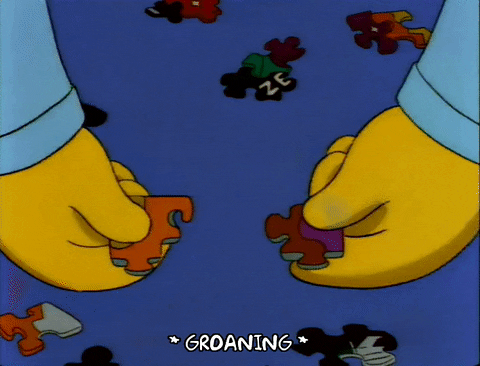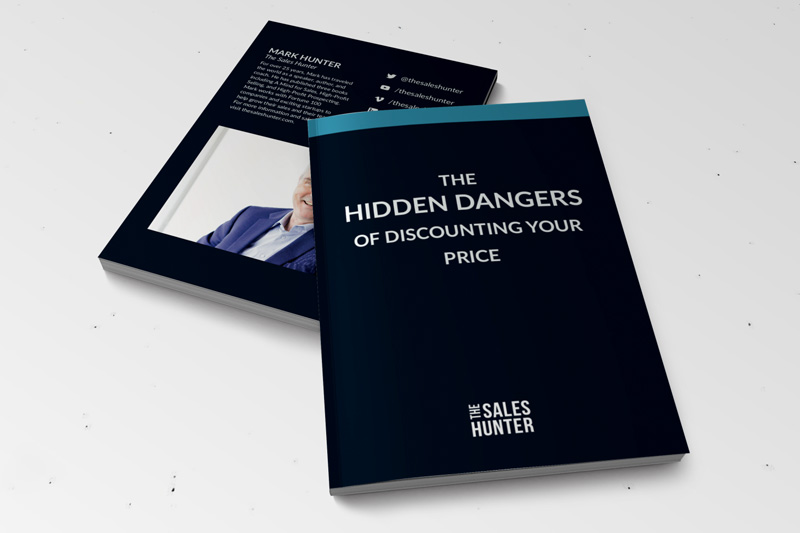Before you negotiate, there are five things you need to know.
Too many times salespeople race to negotiate, because they think in negotiating with the customer sooner, they’ll be able to close the deal quicker. More often than not, this is absolutely not the case.
Don’t run the risk of giving away the farm–or coming up empty–answer these five questions first.
1. Does the customer have a clear need?
People will have meetings with you, or will have conversations with you, but do they have a clear need? It can’t just be a need that you understand, but one that they understand, too. Use the prospecting phase to articulate both.
I see customers calling people to ask, “Hey, what’s your price on this?” And it’s really just an itch. They have an idea, and they’ll only go in and buy it if it’s dirt cheap. Suddenly, you jump into negotiating with them.
It’s similar to when you go shopping and there are things you need to get. But there are other things that I really don’t need to get, but if the price is so cheap, I’ll go ahead and buy it. To me, that’s not selling. That’s giving away the farm.
2. Is my solution viable?
If my solution’s not viable to help them address that clear need, why am I talking to them? The only exception to this rule is if you’re going to refer them to someone.
But, if I’m trying to wiggle and shake and somehow get my solution to fit, I’m either going to wind up overcommitting and creating expectations that I can’t deliver on, giving away too much, or a combination of both.
Don’t try to put a square peg a round hole.
Learn more about Selling a Product v.s. Selling a Solution in this episode of The Sales Hunter Podcast with Jeff Bajorek or listen anywhere you stream podcasts.
3. Am I talking to the decision maker?
This happened to me the other day. A person called me up, we went through the process, and they said, “Well, what’s your fee?” And I said, “I’m not really in a position to share that info because I don’t understand what your need is.”
And I said, “Why are you asking?” So of course they responded, “Well, my boss wanted me to get a price.” See, that person was not the decision maker.
I find salespeople having conversations with the gatekeeper. Or maybe you’re talking to a lower-level person who doesn’t understand the budget. Eventually you’re going to negotiate an entire deal, and they’re going to tell you, “Ok, I’ve got to take this to my boss.” Now what have you just wasted your time on? You wind up having to negotiate all over again.
I need to be sure I’m dealing with the decision-maker.
4. Is there a level of urgency?
It’s true, you can understand the customer has a clear need, have a viable solution, be talking to the decision maker–but if there’s not urgency on their part to make a decision, I’m negotiating in vain.
For example, you could have all the boxes checked, but they have an existing contract in place that runs for another year. And all they’re really doing is trying to get things in place to renegotiate with their existing supplier.
Or it could be they have a clear need. But you know what? Rome’s on fire, and they need to take care of that fire in Rome before they deal with you. That’s a much bigger issue, and it trumps your sale.
If it’s not their number one or number two priority, customers aren’t dealing with it. You’ve got to understand their level of urgency, which means they already have it, or you’ve got to help them see it.
That means you’ve got to be talking far enough downstream. In other words, you should be talking about how your solution is going to help them achieve X, Y, Z, which is going to allow them to address one of their key urgent needs.
5. What are their other options?
I need to know whether or not they’re really interested in closing, or if they’re just trying to get a price from me to negotiate a better deal with somebody else. They may even be considering making no decision at all. Find out about your competition by asking questions like:
What’s your process for making a decision?
How have you decided who to go with or not to go with before?
They might say, “Oh, we always interview 4 people, we talk to 3 people, we get multiple bids…”
Remember, the number one person we go up against isn’t even a person. It’s indecision.
Click here to find out how to defeat the competition you can’t see —indecision!
Sales is emotional. Negotiating is really emotional. So we begin to let our emotions take control and we make assumptions. On each of these five questions, you have to be very clear and articulate that you get a specific answer.
That means you’ve heard them discuss it twice with you, and you’ve asked them questions about it and they’ve come back and their answers have been the same thing. Do not allow any of the answers to these five questions be emotionally driven or assumptive. Get clear answers before moving forward.
This week on The Sales Hunter Podcast…
Are great salespeople born or built?
Developing motivation, authenticity, and confidence is the responsibility of any high-performing sales professional…but where does it come from?
Some qualities of great salespeople might be innate, but our guest Darrell Amy together with Mark explore areas where any sales professional can grow themselves.
Tune in every Thursday, and subscribe here!
Sure, you could take one masterclass from our award-winning, on-demand sales training. Better yet, you could become a member of The Sales Hunter University and get 12 (and counting!)
Come see what TSHU has to offer you.
Copyright 2022, Mark Hunter “The Sales Hunter” Sales Motivation Blog. Mark Hunter is the author of A Mind for Sales and High-Profit Prospecting: Powerful Strategies to Find the Best Leads and Drive Breakthrough Sales Results.
















